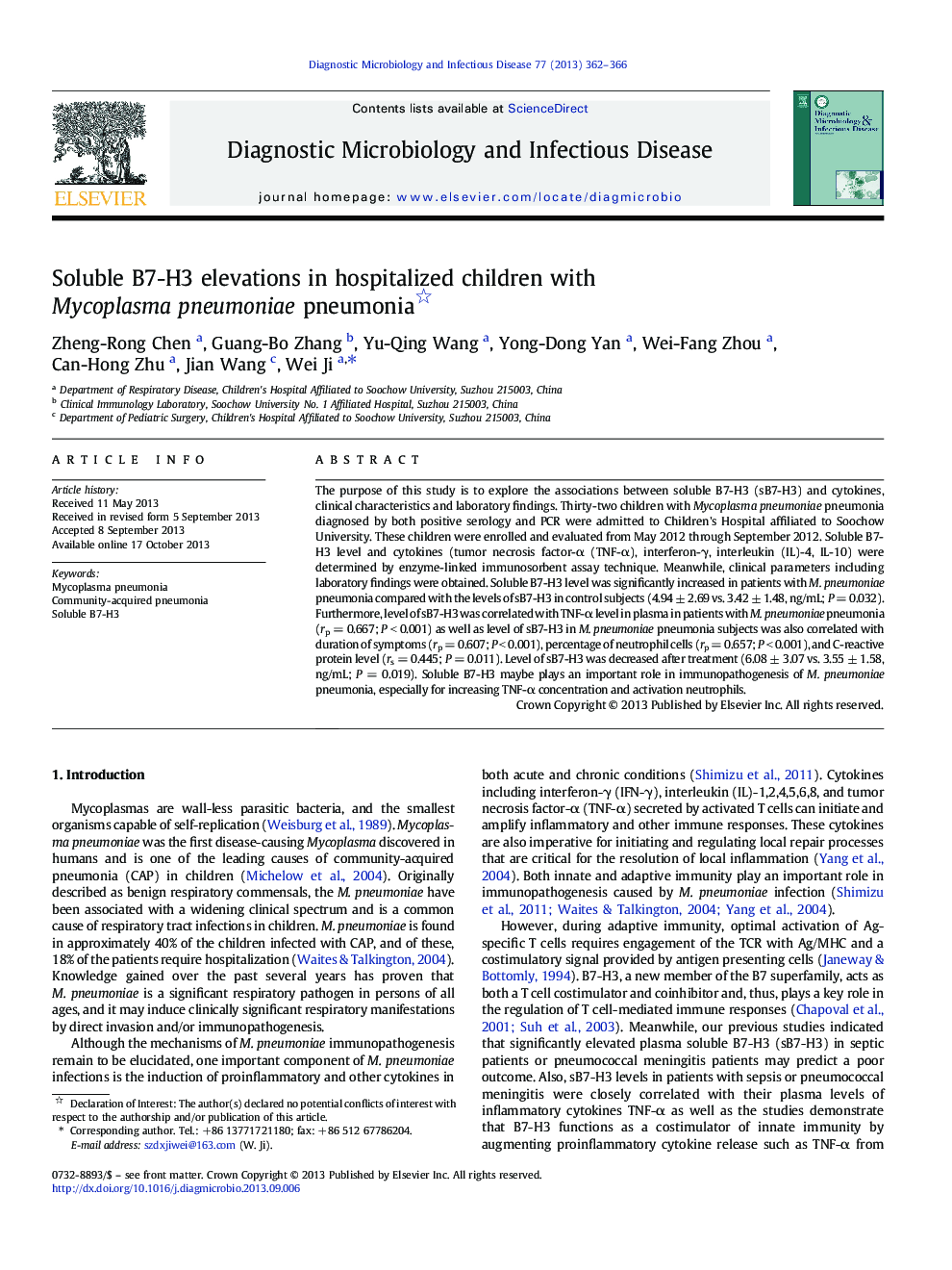| Article ID | Journal | Published Year | Pages | File Type |
|---|---|---|---|---|
| 3347073 | Diagnostic Microbiology and Infectious Disease | 2013 | 5 Pages |
The purpose of this study is to explore the associations between soluble B7-H3 (sB7-H3) and cytokines, clinical characteristics and laboratory findings. Thirty-two children with Mycoplasma pneumoniae pneumonia diagnosed by both positive serology and PCR were admitted to Children's Hospital affiliated to Soochow University. These children were enrolled and evaluated from May 2012 through September 2012. Soluble B7-H3 level and cytokines (tumor necrosis factor-α (TNF-α), interferon-γ, interleukin (IL)-4, IL-10) were determined by enzyme-linked immunosorbent assay technique. Meanwhile, clinical parameters including laboratory findings were obtained. Soluble B7-H3 level was significantly increased in patients with M. pneumoniae pneumonia compared with the levels of sB7-H3 in control subjects (4.94 ± 2.69 vs. 3.42 ± 1.48, ng/mL; P = 0.032). Furthermore, level of sB7-H3 was correlated with TNF-α level in plasma in patients with M. pneumoniae pneumonia (rp = 0.667; P < 0.001) as well as level of sB7-H3 in M. pneumoniae pneumonia subjects was also correlated with duration of symptoms (rp = 0.607; P < 0.001), percentage of neutrophil cells (rp = 0.657; P < 0.001), and C-reactive protein level (rs = 0.445; P = 0.011). Level of sB7-H3 was decreased after treatment (6.08 ± 3.07 vs. 3.55 ± 1.58, ng/mL; P = 0.019). Soluble B7-H3 maybe plays an important role in immunopathogenesis of M. pneumoniae pneumonia, especially for increasing TNF-α concentration and activation neutrophils.
